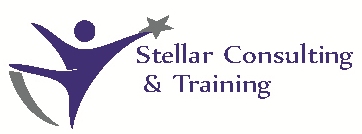Duration: 5 days
This Mini MBA Program is aimed at junior specialists looking to make their next step in professional development. In today’s complex world, it is critical to have the essential executive skills needed to be successful as a manager or a leader.
This five-day program will focus on new models and competencies for success, updating the learning for the new generation of employees, global operations, and the digital age. It takes an innovative approach to training and will introduce you to the key leadership and management topics you usually study in a formal MBA Program.
The junior specialists will also have the opportunity to apply the knowledge and skills they will have acquired in this mini MBA program to a real-world business problem. The capstone project will require them to analyze a case study, identify the key issues and challenges, and propose feasible and innovative solutions. They will present their findings and recommendations to their instructor and peers at the end of the program, demonstrating their mastery of the core concepts and competencies of the mini MBA curriculum.
The Mini MBA Program for Junior Specialists will highlight:
- Marketing, Business Development & Customer Service Excellence
- Communication Skills, Teamwork, and Collaboration
- Project Management and Problem Solving
- Leadership Skills for Team Leaders
- Professional Development and Career Planning
By the end of this program, you will be able to:
- Increase your confidence and competence as a manager or team leader.
- Gain a comprehensive understanding of modern business strategy, including the latest thinking and organization growth models.
- Examine the new best practices in motivation, HR management and talent development.
- Sharpen your financial understanding and skills to make better decisions faster.
- Create a marketing and business development plan using the latest proven global strategies and models.
- Take your communication, personal organization and influencing skills to the next level.
Day 1: Marketing, Business Development & Customer Service Excellence
On the first day of the training, you will learn the fundamentals of marketing, business development, and customer service excellence. You will understand how to identify and segment your target market, develop effective marketing strategies and campaigns, and measure your marketing performance. You will also learn how to build and maintain strong relationships with your customers, deliver exceptional service quality, and handle customer complaints and feedback.
This course covers the following topics:
– Define marketing, business development, and customer service concepts and principles
– Apply market research and analysis techniques to identify customer needs and preferences
– Design and implement marketing strategies and campaigns that align with your business goals and objectives
– Evaluate and improve your marketing performance using key performance indicators (KPIs) and metrics
– Demonstrate effective communication and interpersonal skills with your customers
– Apply customer service excellence standards and best practices to enhance customer satisfaction and loyalty – Manage customer complaints and feedback in a professional and constructive manner
Day 2: Communication skills, Teamwork, and Collaboration
On the second day of the training, you will learn the essential communication skills, teamwork, and collaboration skills that are required for success in any organization. You will learn how to communicate clearly, confidently, and persuasively with different audiences and in different situations. You will also learn how to work effectively in teams, foster a positive team culture, and resolve conflicts constructively.
This course covers the following topics:
– Identify the elements and barriers of effective communication
– Apply verbal, non-verbal, written, and digital communication skills in various contexts
– Adapt your communication style and approach to suit different audiences and purposes
– Use active listening, questioning, feedback, and empathy skills to enhance your communication effectiveness
– Recognize the benefits and challenges of teamwork and collaboration
– Apply teamwork principles and practices to achieve common goals and objectives
– Demonstrate respect, trust, accountability, and diversity in your team interactions – Apply conflict management techniques to resolve disagreements and disputes in a positive way
Day 3: Project Management and Problem-Solving
On the third day of the training, you will learn the basics of project management and problem-solving skills that are essential for any professional. You will learn how to plan, execute, monitor, control, and close projects using a systematic approach. You will also learn how to define, analyze, generate, evaluate, and implement solutions to various problems using creative and critical thinking skills.
This course covers the following topics:
– Define project management concepts and processes
– Apply project management tools and techniques to initiate, plan, execute, monitor, control, and close projects
– Identify project stakeholders, scope, objectives, deliverables, risks, assumptions, constraints, and resources
– Develop a project plan that outlines the project activities, schedule, budget, quality standards, communication plan, risk management plan, change management plan, etc.
– Track and report project progress using appropriate methods and tools
– Identify project issues and changes and take corrective actions as needed
– Evaluate project outcomes and lessons learned using relevant criteria
– Define problem-solving concepts and steps
– Apply problem-solving tools and techniques to identify root causes, generate alternative solutions, evaluate pros and cons of each solution, and select the best solution
– Implement the chosen solution using an action plan that specifies the tasks, responsibilities, timeframes, resources, and expected results – Monitor the implementation of the solution and measure its effectiveness using appropriate indicators
Day 4: Leadership Skills for Team Leaders
On the fourth day of the training, you will learn the key leadership skills for team leaders.
You will learn how to lead yourself, your team, and your organization towards a shared vision, mission, and values.
You will also learn how to motivate, empower, and develop your team members, and how to delegate, coach, and mentor them effectively.
This course covers the following topics:
– Define leadership concepts, styles, and traits
– Identify your personal leadership strengths, weaknesses, opportunities, and threats (SWOT)
– Develop a personal leadership development plan that outlines your goals, actions, and measures of success
– Align your personal vision, mission, and values with those of your organization
– Communicate your vision, mission, and values to your team members in a clear, compelling, and inspiring way
– Motivate your team members by understanding their needs, preferences, and motivators
– Empower your team members by giving them autonomy, responsibility, and recognition
– Develop your team members by identifying their potential, strengths, gaps, and development needs
– Delegate tasks to your team members based on their skills, interests, and readiness levels
– Coach your team members by providing them with constructive feedback, guidance, and support – Mentor your team members by sharing your knowledge, experience, and insights
Day 5: Professional Development and Career Planning
On the fifth and final day of the training, you will learn how to plan and manage your professional development and career progression.
You will learn how to assess your current skills, knowledge, and competencies, and how to identify your career goals and aspirations.
You will also learn how to create a professional development plan that outlines the actions, resources, and timeframes required to achieve your career goals.
You will also learn how to network effectively with other professionals, and how to prepare for job interviews and negotiations.
This course covers the following topics:
– Define professional development and career planning concepts and benefits
– Conduct a self-assessment of your current skills, knowledge, and competencies using various tools and methods
– Identify your career goals and aspirations using various tools and methods
– Create a professional development plan that specifies the actions, resources, and timeframes required to achieve your career goals
– Identify and access various sources of professional development opportunities such as courses, workshops, webinars, mentoring, coaching, etc.
– Evaluate and document your professional development progress and achievements using various tools and methods
– Network effectively with other professionals using various tools and methods
– Prepare for job interviews and negotiations using various tools and methods

